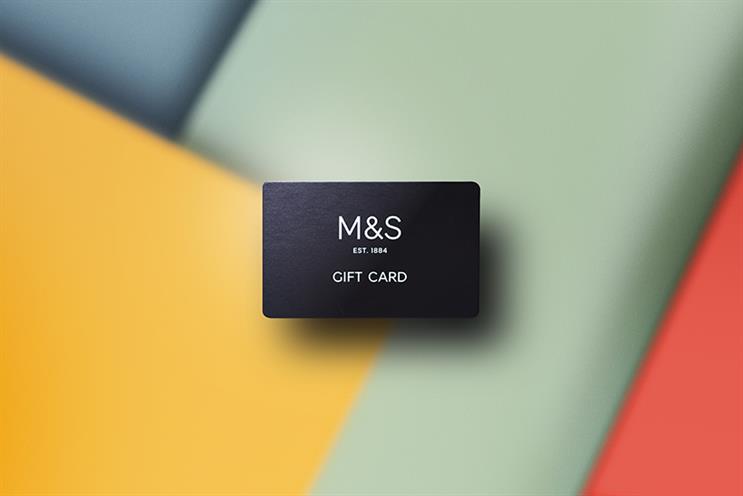
The majority of those gift cards will, of course, be purchased by the general public. But a significant proportion will be purchased as part of marketing strategies, to incentivise sales, reward loyalty, build brand awareness or encourage engagement (such as filling out a survey).
Some marketers, however, remain resistant to gift cards. They believe gift cards have negative connotations or lack sufficient ROI to be considered a valuable marketing tool.
But a 2023 survey of 1,000 UK consumers (commissioned by M&S Corporate Gifts) dispels many objections and misconceptions surrounding the use of gift cards in marketing. Let’s look at four of the most common.
Some marketers allow their “real life” attitude to gift cards to leak into their marketing thinking. They may consider a gift card to be a low-effort present to give someone; a last-minute option to be resorted to only when no other inspiration strikes. (This is arguably a misguided viewpoint in and of itself, but that’s a discussion for another time and place.)
However, there’s a clear difference in gifting expectations between an excited child celebrating their birthday, and an in-market consumer. The former hopes you know them well enough to find them a gift that mirrors their specific interests. The latter would be somewhat unnerved if you did the same for them.
But in the context of corporate gifting – where rewards and incentives have to be one-size-fits-all, by necessity – a gift card is viewed as thoughtful by its recipients, provided said gift card is sourced from a sufficiently high-quality supplier.
In M&S Corporate Gifts’ research, 80% of the 1,000 respondents said they’d feel “truly delighted” or “genuinely appreciated” if they received a gift card from a premium retailer as part of a promotional incentive.
It may only be a wallet-sized rectangle or an emailed digital barcode, but a gift card given as part of a marketing strategy can be viewed – to a surprising degree – as genuinely thoughtful by its recipient.
Objection #2: “Customers would prefer to receive the cash equivalent.”
Of the 1,000 survey participants, 63% agreed that receiving a gift card for a premium retailer would feel more like a “treat” than receiving cash or a discount code. And 91% of respondents said they’d be more likely to remember receiving a gift card over money off a future purchase.
Cash and discounts – while obviously always welcome – are bluntly transactional. They don’t feel special, or represent a “treat” in the same way a gift card does. They incentivise in the moment, but don’t leave a lasting impression. They do little for a brand in the long term, in the way a gift card can.
In these tough economic times, a gift card may feel frivolously impractical. But that’s exactly what makes them so effective: when consumers are denying themselves treats, they’re grateful to be “given permission” to indulge in them.
In truth, however, a gift card can be as sensibly practical or as gleefully frivolous as its recipient wants it to be. Whether they spend it on household essentials or inessential luxuries – or a mix of both – is entirely down to them.

Objection #3: “You’re promoting the supplier of the gift card, rather than the company giving it.”
It’s true that in order to make a gift card feel like an incentive worth making a purchase for, the gift card itself will need to be assigned some of your marketing bandwidth. You’ll need to sacrifice valuable messaging space to it.
Viewed in this way, the gift-card supplier is piggybacking your marketing efforts (albeit unintentionally). They’re getting a free ride; their brand is being made to feel desirable, while drawing focus away from the actual brand being sold.
In truth, however, the relationship between gift-card supplier and gift-card giver is more reciprocal than it is competitive. If the gift card is from a notedly premium brand, that positive quality is also bestowed onto the company giving it away. The two brands become associated in the audience’s mind – the halo effect in action.
In M&S Corporate Gifts’ survey, 71% agreed that if a company offered a gift card from a trusted, premium retailer, it would positively impact their opinion of the company that gifted them. (Asked about M&S specifically, 81% said an M&S Gift Card would make them feel more positively about the company that gifted it to them.)
In addition, 64% stated that if a company offered a gift card from a brand with strong sustainability values and ethical working practices, it would uplift their opinion of that company.
If anything, then, the gift-card giver actually gets to piggyback the gift-card supplier’s marketing.

Objection #4: “Customers simply take their gift card and run.”
Today’s canny consumers are mercenary in their purchasing decisions, so this line of thinking goes. Sure, they’ll eagerly whip a gift card out your hands at the acquisition stage – but then you’ll never see them again.
But according to M&S Corporate Gifts’ survey, that first touchpoint with a customer has a far greater and longer-lasting impact than you might think. Almost all respondents – 95% – stated that a positive first touchpoint with a brand makes them more likely to become a returning customer. Of those 1,000 respondents, 73% said it makes them much more likely to return.
Consumers don’t soon forget being treated well. Something worth remembering.
You can read M&S Corporate Gifts' full eye-opening report on the impact of gift cards as marketing tools here.


